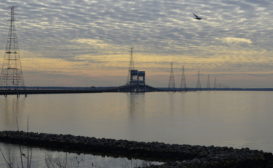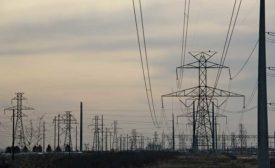Home » Keywords: » Transmission Line
Items Tagged with 'Transmission Line'
ARTICLES
Power infrastructure
Cash-Strapped Spanish Firms Lose Kenyan Power Contracts
Substation line to Uganda in limbo after transmission system operator terminates Abengoa subsidiary
Read More
The latest news and information
#1 Source for Construction News, Data, Rankings, Analysis, and Commentary
JOIN ENR UNLIMITEDCopyright ©2024. All Rights Reserved BNP Media.
Design, CMS, Hosting & Web Development :: ePublishing






